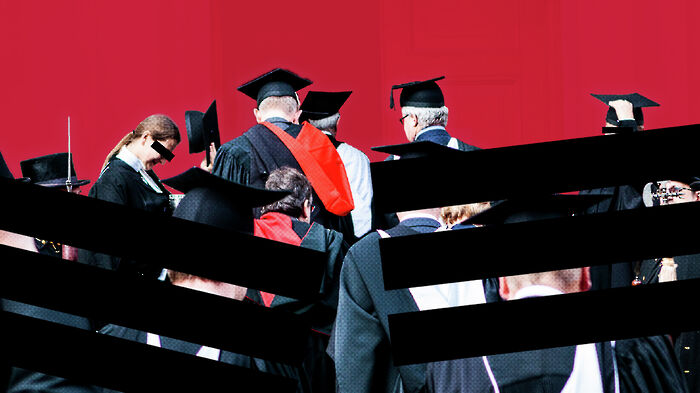Exam checks under threat as striking staff quit posts
With external examiners resigning from their roles, some Cambridge faculties may not have their grading practices externally moderated

At least 17 external examiners for Cambridge papers have resigned as part of ongoing strike action over staff pensions, raising questions over whether faculties will be able to find replacements in time to moderate Easter Term exam marking.
Hundreds of academic staff from across the country have resigned their external examination posts as they seek to increase pressure during ongoing talks between Universities UK (UUK) and the national union for staff and academics.
Dr. Priyamvada Gopal, a senior lecturer in English, claimed the action would “demonstrate how much the HE sector relies on the goodwill and voluntary hard work of hundreds of academics who are asking simply that our modest pensions be preserved”.
The resignations are the latest development in an ongoing dispute over a controversial proposed change to staff pensions. University staff from across the UK walked out last term in an attempt to to pressure university representatives into lobbying for greater concessions during national-level discussions.
If negotiations between Universities UK (UUK), which is the national negotiating body for university employers, and the University and Colleges Union (UCU) fail to reach a compromise, academics and staff will return to the picket lines during exam term for an additional 14 days of strike action.
External examiners, hired from other UK universities, are appointed to Cambridge’s examination boards in order to provide an independent assessment of question papers and examination scripts, and to ensure appropriate standards for qualification. They are considered especially useful in providing an impartial and critical view of examination procedures. Many Cambridge academics act as external examiners at other universities.
Got a story for us?
Seen something you think Varsity should be talking about? Contact our News team at news@varsity.co.uk.
Dr. James Kneale, an external examiner for Cambridge’s Human Geography papers from UCL who has resigned his post, described the role as providing a “sympathetic friend” while acting as “an essential check on the department that they are working with”.
Kneale added that external examiners “protect students from procedural mistakes and abuses, not just at the board meetings but in appeal cases too”, and said providing an outside perspective made it easier to raise concerns.
Numerous Cambridge departments – including the faculties of English, Classics, Maths, and Geography – have seen external examiners resign, following a recommendation issued by the University and Colleges Union (UCU) last week.
UCU called upon external examiners to resign their posts and to not take up any new positions, in order to cause additional disruption to universities and to bring university representatives back to the negotiating table.
A University of Cambridge spokesperson told Varsity that in the event that alternative external examiners cannot be found, faculties have been advised to “seek out other means of moderation”.
“This might include the appointment of additional examiners, including the use of examiners from another part or course [at Cambridge] to provide a degree of external scrutiny, or further statistical analysis of marks to check consistency of practice and fairness,” they said, adding that the University “does not believe that external examiner resignations will delay students’ results in certain papers”.
Several lecturers spoke to Varsity about the reluctance they feel in resigning from their posts: Dr. Andrea Brady, an external examiner for the Part I English Tripos from Queen Mary, University of London, said that she “resigned with regret”, while Part IB Classics examiner Dr. Victoria Moul, from King’s College London, added that “it takes a great deal to bring academics to the point where they are prepared to take action which has or might have any negative consequences for students”.
At least seven staff at the University of Cambridge who act as external examiners elsewhere have also resigned from their posts.
Dr. Charlotte Lemanski, a senior lecturer in Geography, explained her decision to resign, saying: “Universities UK are determined to implement severe cuts to our pensions, threatening the long-term viability of the HE sector – despite widespread knowledge regarding the uncertainty of the USS valuation as well as the absence of transparency regarding the UUK/USS process of ‘consultation’ – I no longer feel the same duty and responsibility to the HE sector that I did when I originally agreed to serve as an external examiner.”
Some Cambridge academics described a sense of disillusionment with the higher education sector as a whole, where they are less willing to fulfill what they see as their “duty” to the students and the sector. Professor Mary Laven, from the Faculty of History, said that resigning from external examiner roles was “an extreme measure, which we have been driven to, thanks to the intransigence of UUK”.
UUK said last Friday that a proposed switch to defined contribution schemes be put on hold while a third-party panel of experts evaluates potential pension reforms. The UCU, however, has said that the complete switch from defined benefit to defined contribution schemes is “no longer on the table”.
 News / Judge Business School advisor resigns over Epstein and Andrew links18 February 2026
News / Judge Business School advisor resigns over Epstein and Andrew links18 February 2026 News / Gov grants £36m to Cambridge supercomputer17 February 2026
News / Gov grants £36m to Cambridge supercomputer17 February 2026 News / Hundreds of Cambridge academics demand vote on fate of vet course20 February 2026
News / Hundreds of Cambridge academics demand vote on fate of vet course20 February 2026 News / CUCA members attend Reform rally in London20 February 2026
News / CUCA members attend Reform rally in London20 February 2026 News / Union speakers condemn ‘hateful’ Katie Hopkins speech14 February 2026
News / Union speakers condemn ‘hateful’ Katie Hopkins speech14 February 2026











